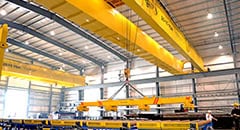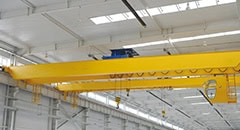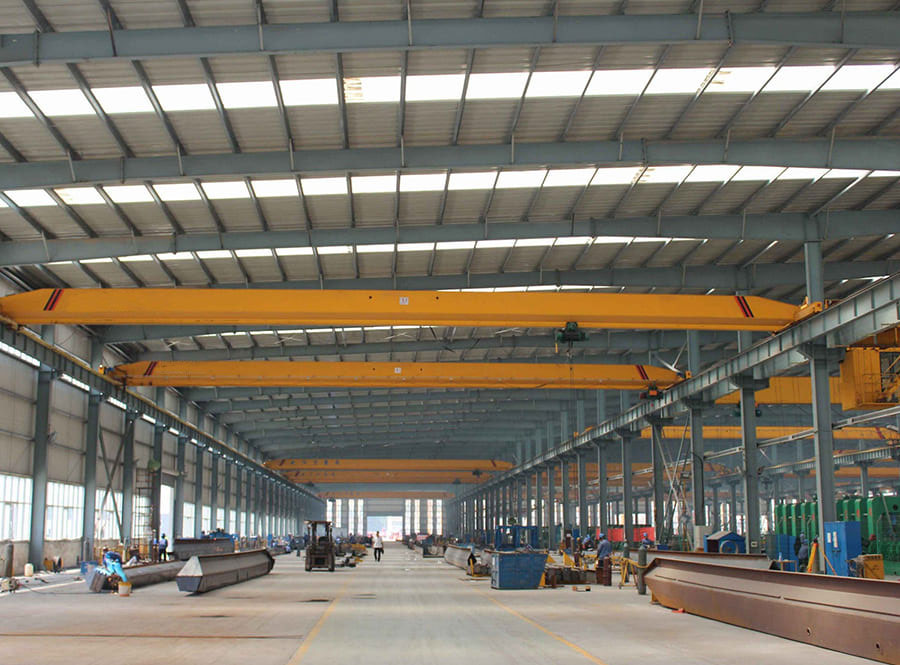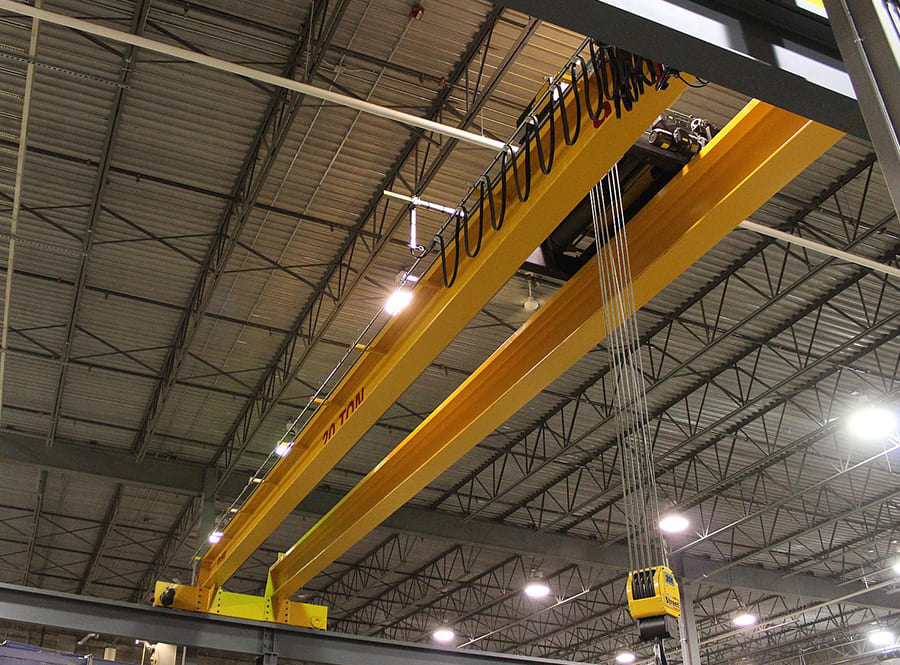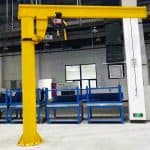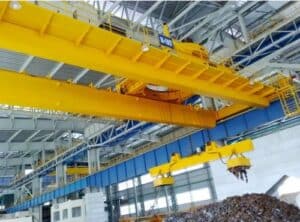Structural strength: The 50-ton overhead crane needs to have stronger structural strength to withstand and lift heavier loads. Components such as bridges, beams, supports and bearings may be made stronger and more durable to meet high load requirements.
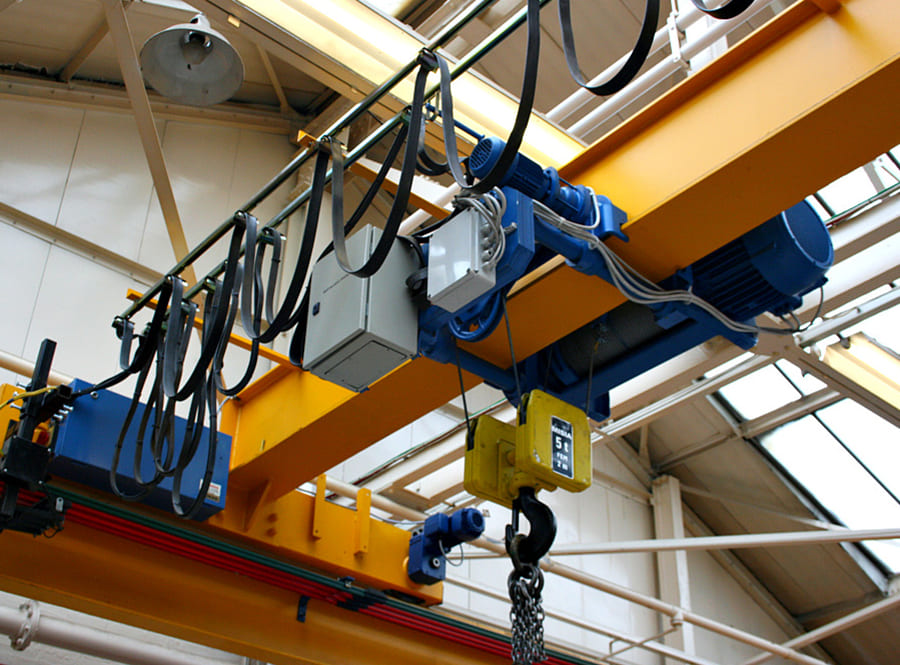
Large crane beam: The beam is one of the main structures of an overhead crane. It spans over the work area and is used to support the crane and lifting mechanism. A 50-ton overhead crane may use a larger size and heavier beam to provide sufficient strength and stability.
Lifting mechanism: The lifting mechanism of a 50-ton crane needs to have sufficient carrying capacity and control accuracy to cope with the lifting requirements of heavy loads. Lifting mechanisms may use larger crane ropes, more powerful drums and more powerful hoist drive systems.
Supports and supports: 50-ton bridge cranes require stronger designs and structures on supports and supports to ensure the stability and balance of the crane. This may include larger support areas, stronger foundations and enhanced support structures.
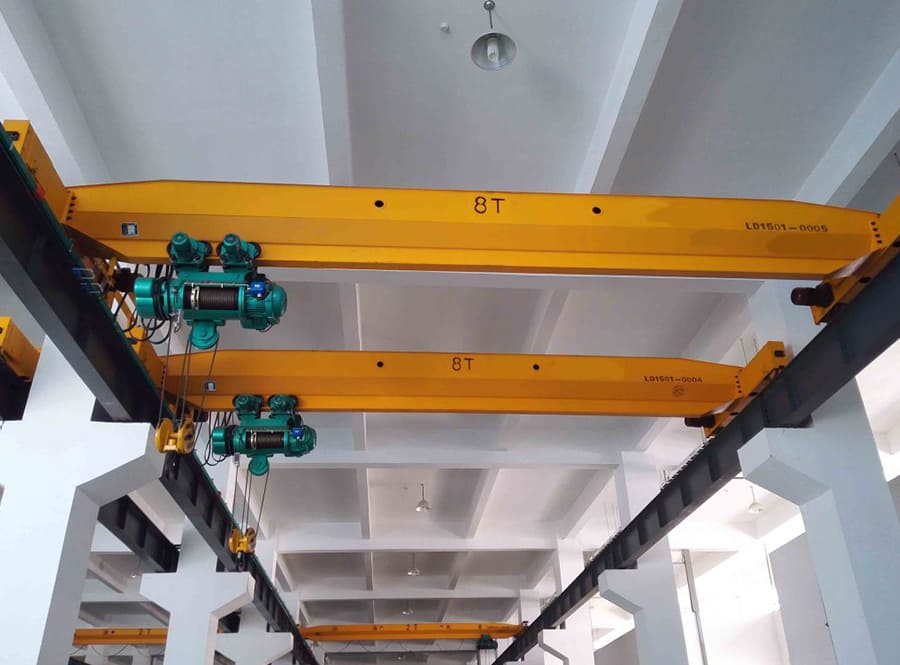
Control system: The control system of the 50-ton overhead crane may require higher accuracy and flexibility to meet the operating requirements of large loads. This could include more advanced electrical control systems, more responsive joysticks and more safety features.
It is important to note that specific construction differences may vary depending on the crane manufacturer, model and design requirements. If you are purchasing or operating a 50-ton overhead crane, it is recommended to consult a professional manufacturer or supplier for accurate technical specifications and details.

